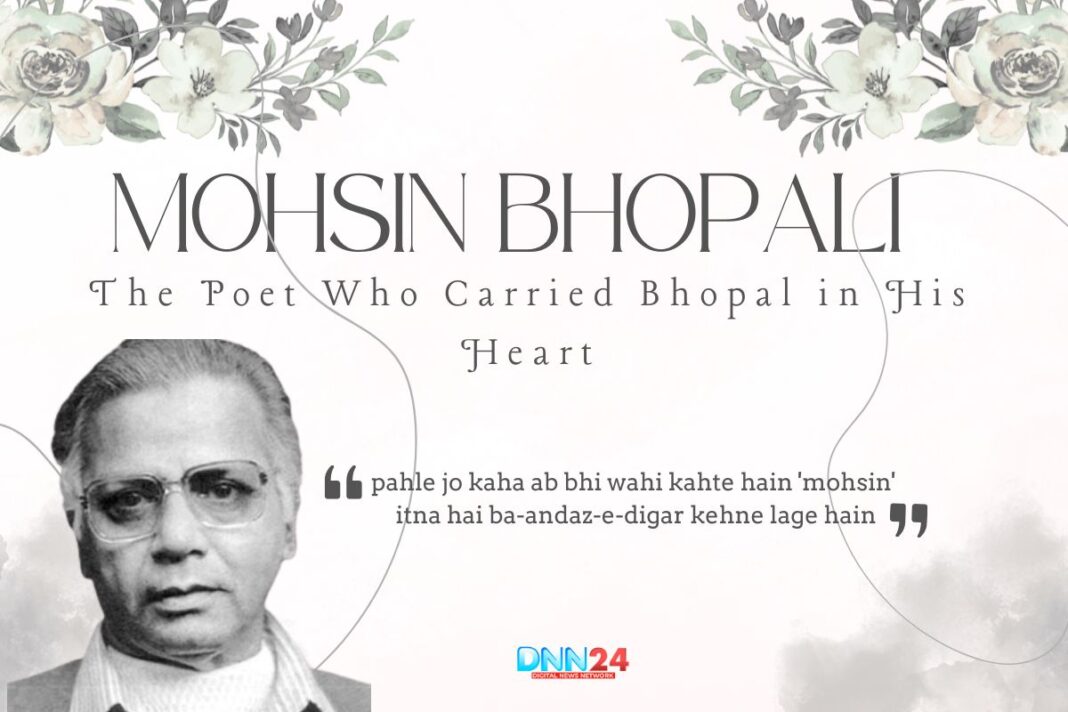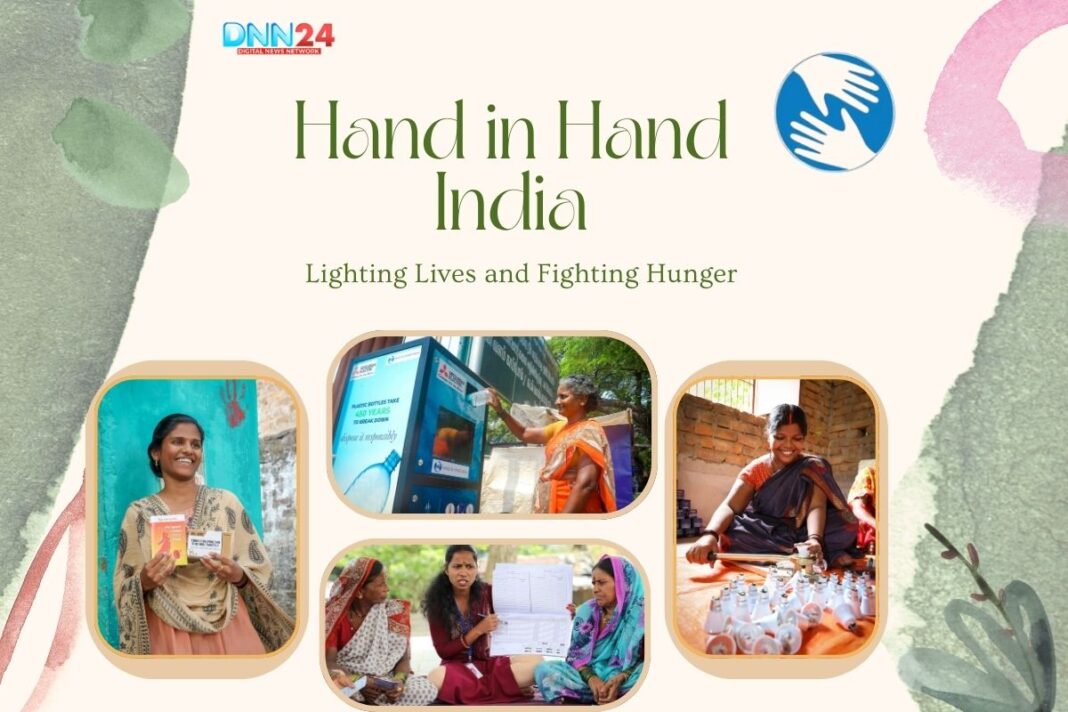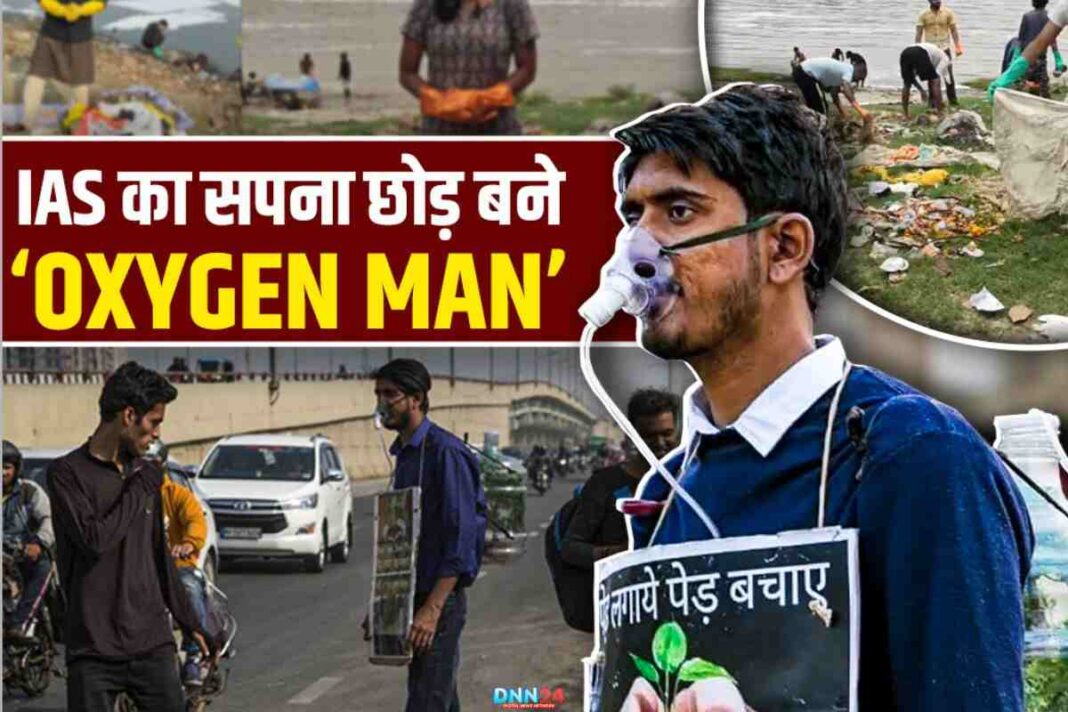Mohsin Bhopali came into this world as Abdur Rahman on September 29, 1932, in the beautiful city of Bhopal, Madhya Pradesh. His father, Haji Abdul Razzak, worked as a simple postmaster, and their family lived a modest life filled with love and dreams. Young Mohsin was not like other children. He would sit quietly, watching people pass by, listening to their stories, and feeling their emotions deeply in his small heart.
nairangi-e-siyasat-e-dauran to dekhiye
Mohsin Bhopali
manzil unhen mili jo sharik-e-safar na the
The dusty lanes of Bhopal became his first classroom. Here, he learned about friendship, pain, and the power of words. When India was divided in 1947, fifteen-year-old Mohsin had to leave everything behind. His family packed their belongings and moved to Pakistan, carrying memories of home in their hearts.
ghalat the waade magar main yaqeen rakhta tha
Mohsin Bhopali
wo shakhs lahja bahut dil-nasheen rakhta tha
This journey was not just a change of address for Mohsin. It was the beginning of a lifelong search for belonging. The pain of leaving Bhopal, the excitement of a new country, and the confusion of growing up during such troubled times all mixed in his young mind. These early experiences became the foundation of his poetry. Every verse he would later write carried the dust of Bhopal streets and the tears of partition. His simple upbringing taught him to find extraordinary beauty in ordinary moments.
The Birth of a Poet: When Words Became His Weapon
In 1948, just one year after reaching Pakistan, sixteen-year-old Mohsin picked up his pen and started writing poetry. His first poems were not published in fancy books or read by famous people. Instead, they were written on paper, shared with friends, and recited in small gatherings. But these simple verses carried something special – they spoke directly to people’s hearts.
zindagi gul hai naghma hai mahtaab hai
Mohsin Bhopali
zindagi ko faqat imtihaan mat samajh
Mohsin became a student of two great masters: Seemab Akbarabadi and Saba Mathravi. Under their guidance, he learned that poetry is not just about beautiful words. It is about capturing human emotions and making them eternal. His teachers showed him how pain can become power and personal experiences can touch universal themes.
jaane waale sab aa chuke ‘mohsin’
Mohsin Bhopali
aane waala abhi nahin aaya
Life was not easy for the young poet. Sometimes, his family had no money to print his poems, and sometimes, people did not understand his modern style of writing. But Mohsin never gave up. There were nights when he would work during the day to earn money and write poetry until dawn. He would travel long distances to attend poetry meetings, hoping someone would listen to his verses.
jo mile the hamen kitabon mein
Mohsin Bhopali
jaane wo kis nagar mein rahte hain
Few people know that Mohsin once sold his books to buy medicine for his sick family members. This shows his character, he valued human life more than his literary success. These struggles made his poetry more authentic. Every difficult day, every sleepless night, every moment of doubt became material for his verses. His early poems were like letters written to God, asking for strength and hope.
Creating Magic with Words: His Literary Contributions
Mohsin Bhopali was not just another poet writing traditional verses. He was an innovator who brought fresh air to Urdu literature. His most famous ghazal, “Chahat Mein Kya Duniyadari, Ishq Mein Kaisi Majboori,” became so popular that people still sing it today. This ghazal perfectly captured people’s helplessness between love and worldly responsibilities.
kis qadar nadim hua hoon main bura keh kar use
Mohsin Bhopali
kya khabar thi jaate jaate wo dua de jaayega
But Mohsin’s genius was not limited to ghazals. He introduced Japanese haiku to Urdu readers, making him one of the first Pakistani poets to do so. Haiku is a short form of poetry, but Mohsin showed how these tiny poems could carry huge emotions. He also invented something completely new – the “Nazmane,” which was like a short story told in verse form. This innovation proved that poetry could tell complete stories in just a few lines.
hamari jaan pe dohra azaab hai ‘mohsin’
Mohsin Bhopali
ki dekhna hi nahin ham ko sochna bhi hai
His travelogue “Hairaton ki Sarzamin” took readers on a journey to America, but it was not just about places and people. It was about how a person from Bhopal saw the world, how memories of home colour every new experience, and how travel can make you understand yourself better. Mohsin wrote this book with such simple language that even familiar readers could enjoy it.
sada-e-waqt ki gar baaz-gasht san paao
Mohsin Bhopali
mere khayal ko tum shairana kah dena
When Karachi faced violence in 1992, Mohsin wrote “Shahr-i-Ashob,” a collection of poems against the bloodshed. This was a brave act because criticising such situations could be dangerous. However, Mohsin believed that poets were responsible for speaking for peace and humanity. His words became a voice for those who were suffering in silence.
The Warrior Who Never Surrendered: Fighting Life’s Battles
Life tested Mohsin Bhopali in many ways, but perhaps the cruellest test came when he was diagnosed with throat cancer. For a poet whose voice was his most excellent tool, losing the ability to speak clearly was like losing his identity. He had to undergo surgery abroad, and when he returned, his melodious voice was gone forever. Many people thought this would be the end of his career.
ek muddat ki rifaqat ka ho kuchh to inaam
Mohsin Bhopali
jaate jaate koi ilzaam lagate jaao
But Mohsin proved that true poets write with their hearts, not just their voices. Even after losing his voice, he continued writing with the same passion. His pen became more potent than ever. He wrote about his illness, fears, and hopes with such honesty that readers felt they were sharing his journey.
us ko chaha tha kabhi khud ki tarah
Mohsin Bhopali
aaj khud apne talabgaar hain ham
During this difficult time, Mohsin worked on translating Sindhi poetry into Urdu. This was his way of building bridges between different cultures and languages. He believed that literature could unite people divided by politics and borders. His translation showed that pain and joy are universal – they exist in every language and every culture.
sooraj chadha to phir bhi wahi log zad mein the
Mohsin Bhopali
shab bhar jo intezar-e-sahar dekhte rahe
The courage Mohsin showed during his illness inspired many young writers. He proved that physical limitations cannot stop a creative mind. Even when he could barely whisper, he would recite poetry to his friends, making everyone around him feel hopeful. His battle with cancer was not just a personal fight – it was a message to the world that artists never truly surrender.
Living Forever Through Words: The Eternal Legacy
Mohsin Bhopali passed away on January 17, 2007, in Karachi, but his words continue to live in the hearts of millions. His legacy is not measured in awards or recognition, but in the countless people who find comfort in his verses during difficult times. In schools, students still learn his ghazals, and young poets try to write like him.
kya khabar thi hamen ye zakhm bhi khana hoga
Mohsin Bhopali
tu nahin hoga teri bazm mein aana hoga
What makes Mohsin’s legacy special is how he remained connected to ordinary people throughout his life. He never wrote complicated poetry that only scholars could understand. His language was simple, his emotions were real, and his message was always hopeful. Whether someone was dealing with love, loss, migration, or an identity crisis, they could find something relevant in Mohsin’s poetry. His innovation in introducing new forms like haiku and Nazmane opened new doors for Urdu literature.
iblaagh ke liye na tum akhbar dekhna
Mohsin Bhopali
ho justuju to koocha-o-bazaar dekhna
Today, many poets experiment with different styles because Mohsin showed them it was possible. His work proves that tradition and modernity can exist together, that respecting old forms does not mean rejecting new ideas.
‘mohsin’ apnayat ki faza bhi to ho
Mohsin Bhopali
sirf deewar-o-dar ko makan mat samajh
The most important lesson from Mohsin’s life is that every struggle has value. He showed that personal pain, when expressed honestly, can heal others. His journey from a small-town boy to a celebrated poet proves that talent, combined with hard work and sincerity, can overcome any obstacle. For anyone facing difficulties, Mohsin’s story whispers: “Your pain has purpose, your voice matters, and your dreams are worth fighting for.”
Also Read: Rajinder Manchanda Bani: The Voice of Pain, Hope, and Endurance
You can connect with DNN24 on Facebook, Twitter, and Instagram and subscribe to our YouTube channel.



